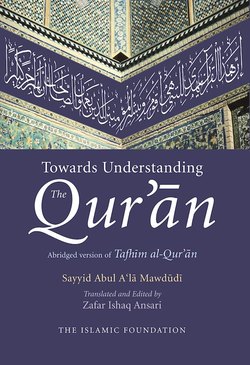Читать книгу Towards Understanding the Qur'an - Sayyid Abul A'la Mawdudi - Страница 242
На сайте Литреса книга снята с продажи.
ОглавлениеAl-Nisa’ 4: 128
Say: “Allah pronounces to you concerning them, and reminds you of the injunctions which were recited to you in the Book about female orphans whom you do not give what has been ordained for them and whom you wish to marry (out of greed),”81 and the command- ments relating to the children who are weak and helpless. Allah directs you to treat the orphans with justice. Allah is well aware of whatever good you do.
(128) If a woman82 fears either ill-treatment or aversion from her husband it is not wrong for the husband and wife to bring about reconciliation among themselves ▶
81 The words of the text may be interpreted as: “whom you wish to marry (out of greed)” and also as “whom you do not wish to marry”.
82 The actual response to the query begins here. The question is how a person who had more than one wife can comply with the injunctions to be just and equitable towards all of them. Is a person obligated by Islam to feel equally towards each of his wives, to love each to an equal degree, and treat each of them equally even in respect of sexual relationship? Such questions are especially relevant with regard to a husband one of whose wives might be, say, afflicted with either sterility or permanent sickness or who is incapable of sexual intercourse. Does justice demand that if a person fails to live up to the standards of equality mentioned above he should renounce his first wife in order to marry another woman? Moreover, where the first wife is disinclined to agree to the annulment of marriage, is it appropriate for the spouses to make a voluntary accord among themselves, according to which the wife, towards whom the husband feels relatively less attracted, voluntarily surrenders some of her rights and thereby persuades her husband not to repudiate the marriage? Would such an act be against the dictates of justice?
193
